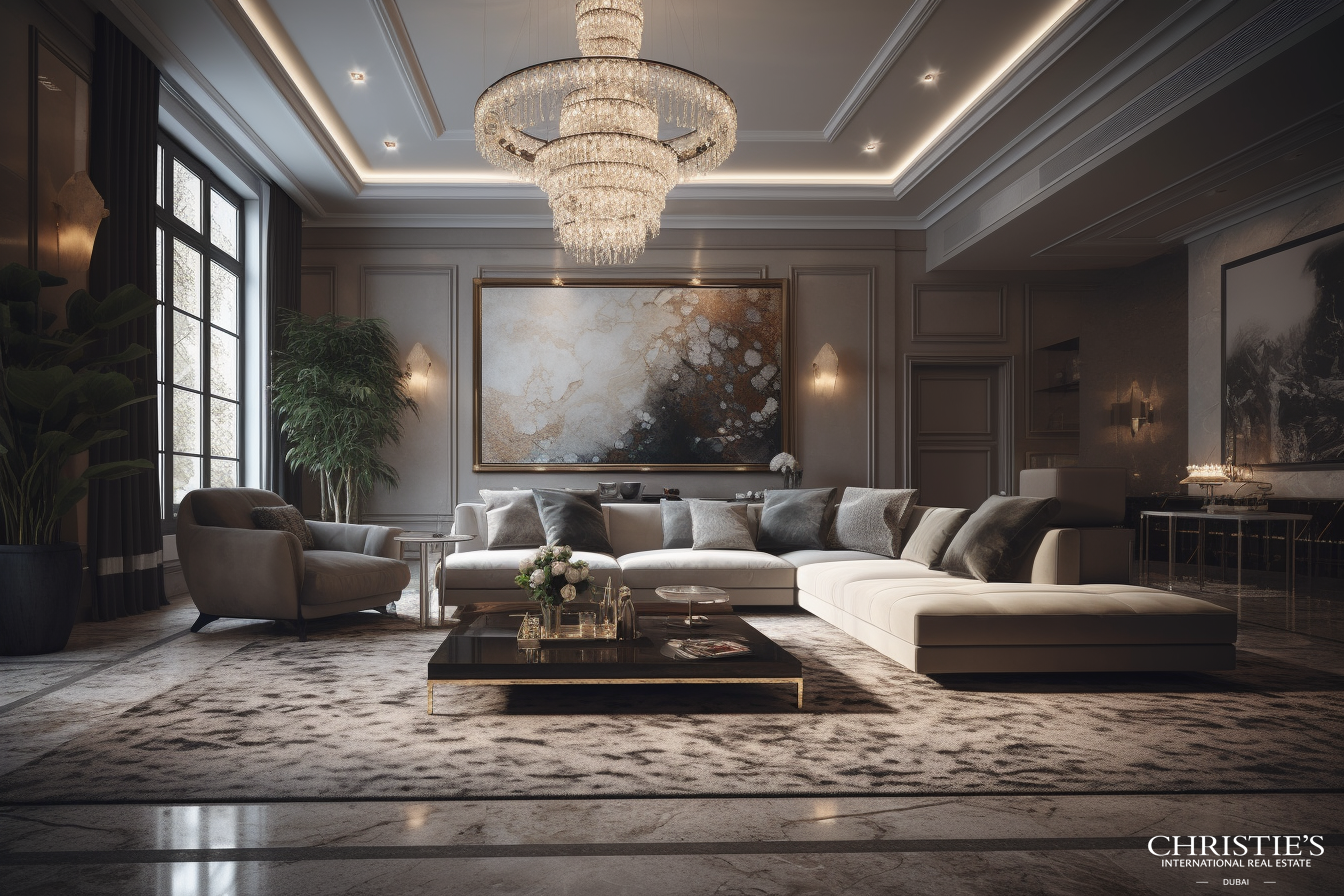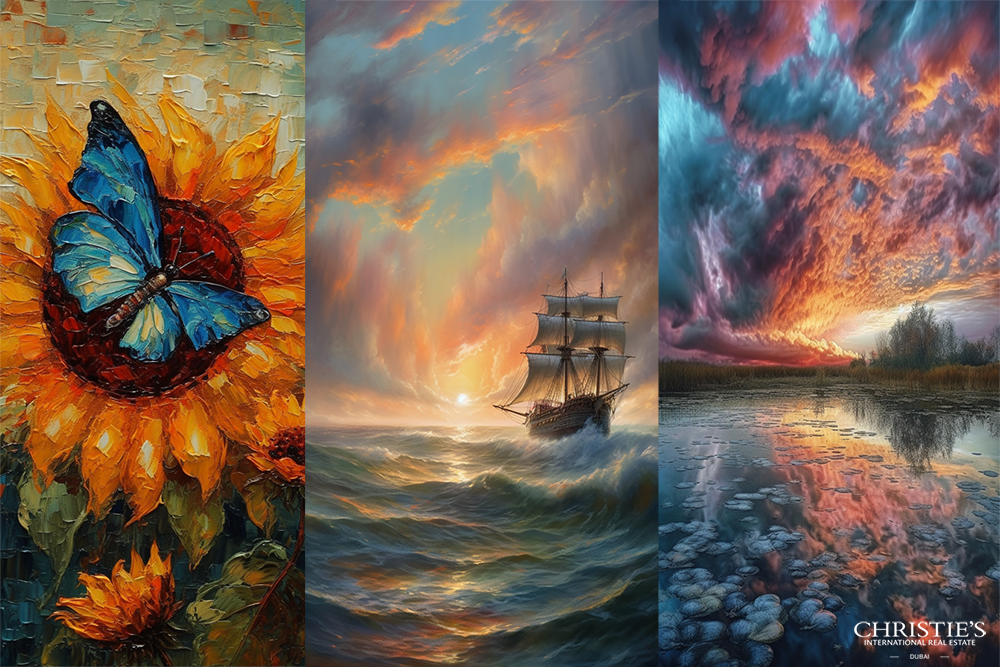All the images in this article have been generated by Christie’s International Real Estate Dubai using artificial intelligence — a fact that would have been improbable a mere two years ago, when we opened our doors in Dubai. It speaks to the rapid ascent of AI art.
Using generative AI, where systems learn from the input data’s pattern and structure, image generators such as OpenAI’s Dall-E can produce pictures in seconds. No image is off limits — from world leaders as rockstars to a Wes Anderson-directed Harry Potter.

Why the popularity? Because AI art is fast, easily accessible and uncomplicated. Whether it is Midjourney using diffusion or Dall-E 2 taking in 650 million images, the process remains the same — users describe an image in prompts using everyday language. Given that the AI system has seen millions of related images online, it is able to produce an entirely new yet similar picture.
Arguably, the wider public only acknowledged the impact of AI art in 2018 — when Christie’s auctioned the AI-generated Portrait of Edmond Belamy for an unprecedented US$432,500. The nascent yet growing industry generated controversy almost as instantly as it generates its images — most recently when Jason M. Allen’s AI-generated Théâtre D’opéra Spatial won the Colorado State Fair’s annual art competition.

And therein lies the inevitable question — what is the future of human art?
Already, Shutterstock has agreed to integrate Dall-E. Oppositely, though, Getty Images has sued Stability AI for illegally copying and commercialising Getty’s library.
And this leads to the other issue — copyright. With databases being trained to produce art in the style of actual artists, and usually without any permissions framework, who owns art? How does one distinguish between man and machine? Researchers at the University of Chicago have created Glaze to counter this — the tool can help artists protect their works against AI imitation.
Jason Allen himself has stated definitively: “AI won. Humans lost.” Ironically, it is left to that other brainchild of OpenAI, ChatGPT, to oppose him: “[The] question of whether AI-generated art can truly be considered art is a matter of debate.”
The U.A.E., meanwhile, is for artificial intelligence and virtual technology. With progressive initiatives like the National Strategy for Artificial Intelligence 2031, the U.A.E. Council for Artificial Intelligence and the Virtual Assets Regulatory Authority, the country is firmly on the path to becoming an AI-friendly hub. The Christie’s Art + Tech Summit, held in collaboration with Christie’s International Real Estate Dubai this past March as part of Art Dubai 2023, further gathered thought leaders to discuss issues surrounding art’s relationship with Web3, artificial intelligence, blockchain and more.



